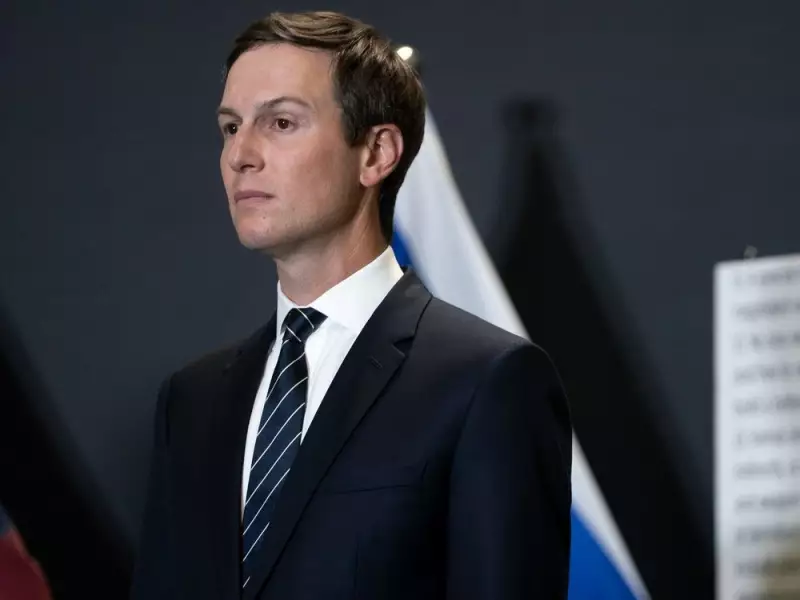
In a significant diplomatic development, former White House senior adviser Jared Kushner made an unannounced visit to Israel for high-level talks with Prime Minister Benjamin Netanyahu. The surprise meeting, held in Jerusalem on Monday afternoon, focused on advancing the implementation of former President Donald Trump's comprehensive peace proposal for the Gaza Strip.
Secret Arrival and High-Level Participants
Kushner arrived discreetly at Tel Aviv's Ben Gurion Airport on Sunday night, keeping his travel plans confidential until the meetings were underway. The Israeli Prime Minister's Office released photographs confirming the meeting, showing that Strategic Affairs Minister Ron Dermer participated alongside Netanyahu for the Israeli delegation.
Kushner was accompanied by Aryeh Lightstone, who serves as a senior adviser to Steve Witkoff, Trump's special Middle East envoy. The presence of these key figures indicates the seriousness of the discussions surrounding the proposed 20-point peace agreement originally developed during the Trump administration.
Diplomatic Priorities Take Precedence
The importance of these talks was underscored when judges overseeing Netanyahu's ongoing corruption trial agreed to cancel the prime minister's scheduled testimony on Monday. The court accepted Netanyahu's request citing "urgent diplomatic meetings" as the reason for the postponement.
Israeli media had previously reported that Kushner was expected to visit alongside Steve Witkoff, though the exact timing and nature of the discussions remained confidential until after Kushner's arrival. The Kan News public broadcaster had broken the story about the planned visit on Sunday, though details remained scarce until the meetings commenced.
Gaza Peace Agreement Challenges
According to Israeli assessments shared during the discussions, Jerusalem believes that Hamas is deliberately delaying the return of remaining deceased hostages to avoid proceeding with its disarmament. This disarmament process constitutes a critical component of the second phase of Trump's ceasefire agreement, which envisions deploying an international force throughout the Gaza Strip.
Israeli officials contend that the terrorist organization is using stall tactics to buy time for reestablishing control over territories from which the Israeli Defense Forces have withdrawn. This strategic positioning would provide Hamas with greater leverage in future negotiations concerning Gaza's reconstruction and long-term governance.
The unannounced nature of Kushner's visit and the high-level participation from both American and Israeli sides demonstrate the continued importance of the Trump-era peace framework in current diplomatic efforts. The discussions represent ongoing attempts to find sustainable solutions to the complex challenges facing the Gaza region and broader Israeli-Palestinian relations.





